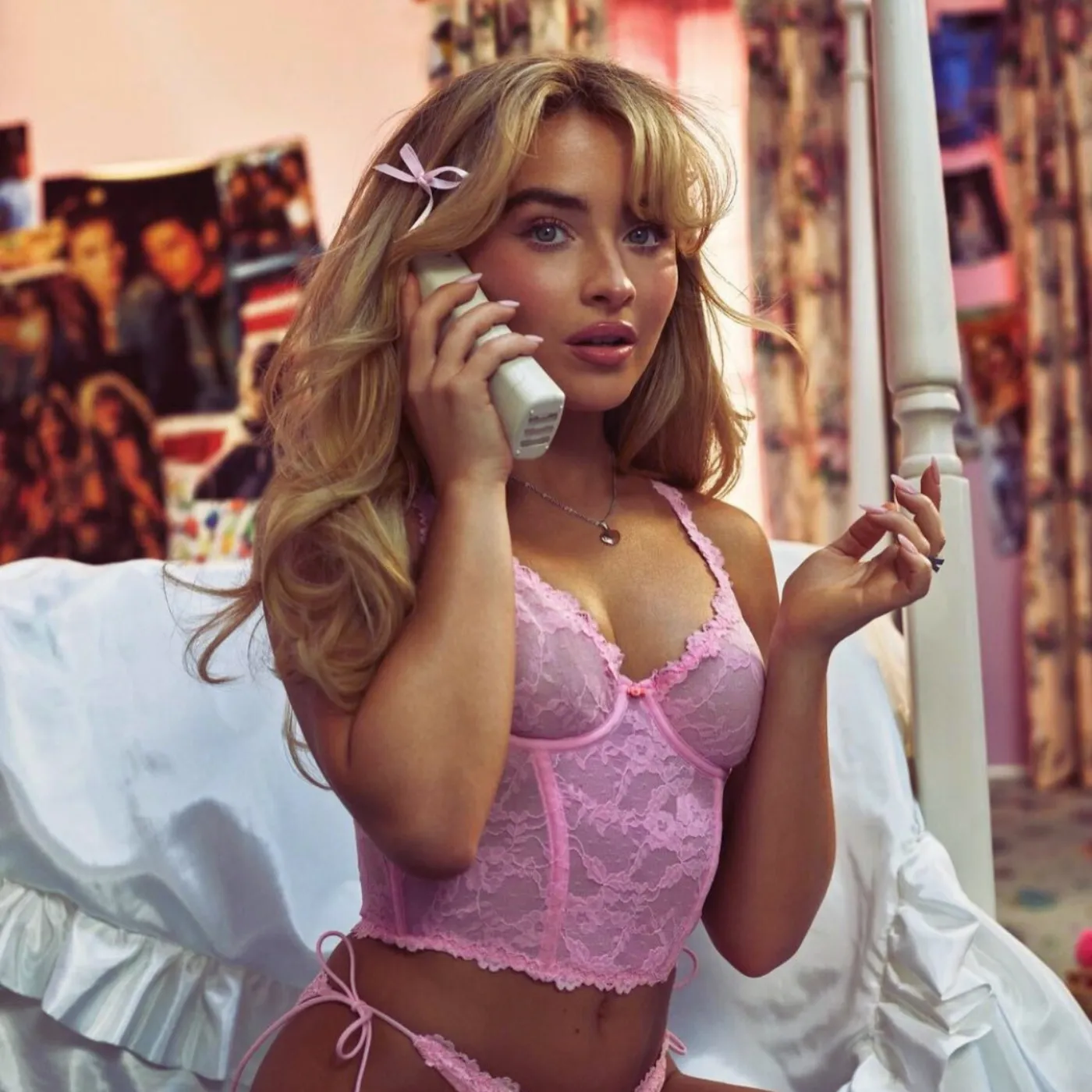

Sabrina Carpenter Exposed for Playing the Perfect Girl Next Door
In a world obsessed with viral call-outs, Sabrina Carpenter has found herself the latest target of social media buzzwords designed to tear down anyone too polished, too charming, or simply too good at reading the room. This week, the term “pick me girl” has been plastered across Facebook, TikTok, and Twitter in heated debates about the Emails I Can’t Send singer’s public persona.

The accusation? That Sabrina Carpenter’s carefully curated sweet-girl image is really a play to win male approval while dismissing other women. It’s the type of accusation that requires almost no proof to stick—and that’s exactly why it’s catching fire.
So how did a pop star with platinum plaques, magazine covers, and sold-out shows become the internet’s latest “pick me” scapegoat? Let’s unpack the mess.
Who Is Sabrina Carpenter—and Why Do People Care?
For those who somehow missed her transformation from Disney Channel star to platinum-certified pop sensation, Sabrina Carpenter is a veteran of the fame game despite her age. She’s built a brand on clean pop hooks, pretty dresses, and a well-spoken, self-aware sense of humor that works well in interviews.
But that same polish has become ammunition for critics. When you’re too put together, too nice, too ready with a clever comeback—it can read as fake to a skeptical audience.
Especially to an audience primed to sniff out pick me behavior.
What Does “Pick Me Girl” Even Mean?
If you’ve spent any time on Facebook or Twitter, you’ve probably seen “pick me” used as a weapon in comment threads.
It’s a term with roots in meme culture, describing someone (often a woman) who’s so eager for male approval she’ll throw other women under the bus. A pick-me girl is the one who says, I’m not like other girls, who claims to love football just for the guys, who insists she’s one of the boys.
It’s not just an insult—it’s an accusation of betrayal against womanhood itself.
The problem? Like so many viral insults, it can be hurled at anyone for basically any reason.
Why Is Sabrina Carpenter Being Called a Pick-Me Girl?
So how did Sabrina Carpenter get saddled with this label?
Let’s start with her image. She’s consistently marketed as sweet but knowing—the best friend who’s also the crush, the good girl with an edge. It’s a persona that walks a tightrope between approachable and aspirational.
Some online think she leans too hard into I’m not like other pop stars. The outfits are glamorous but playfully modest. The interviews are self-deprecating but just flirty enough. She’s confident but never too loud, stylish but never too threatening.
To critics, this all feels calculated.
And in the algorithm-driven world of social media, perception is everything.

The Facebook Debate: Polished vs. Fake
Facebook posts about Sabrina Carpenter are getting thousands of shares—not because they’re praising her vocals or her chart success, but because people are fighting in the comments.
Here’s how it goes:
“She’s so relatable; love her.”
“She’s fake af, such a pick-me.”
“Stop hating on a successful woman.”
“She panders so hard it’s cringe.”
This endless back-and-forth is catnip for Facebook’s engagement algorithm. Posts with 400+ comments—even if they’re arguments—get boosted to more feeds. The more heated the debate, the more likely you’ll see it.
The Meme Economy Is Thriving on It
The pick-me discourse isn’t just for essays and Facebook rants—it’s the fuel for memes.
Twitter is littered with side-by-side photos of Sabrina Carpenter smiling sweetly next to sarcastic captions like
“I don’t even wear makeup, boys hate that.”
Some memes are harmless jokes, but others are biting. They call her the CEO of not-like-other-girls culture, claiming she’s carefully crafted a brand to be the cool girl who’s safe for male approval.
It doesn’t matter whether any of this is true. Once you’re meme-ified, you’ve lost the plot.
The Role of Her Music
Adding fuel to the fire? Her own lyrics.
Some critics say Sabrina Carpenter’s songs dip into “pick me” territory—tracks about being the understanding girl, the patient one, the one who sees through the drama.
Take “Because I Liked a Boy,” which deals with her past drama but also paints her as the girl misunderstood by everyone else. For many listeners, that’s relatable. For others, it’s performative.
It’s a lose-lose. She’s either being raw and real, or she’s weaponizing vulnerability to look better than her rivals.
But Is It Fair?
The accusation of being a pick-me girl has become so watered down it can mean basically anything.
Critics claim she’s too friendly, too polished, too flirty, and too safe. But these are exactly the traits that pop stars—especially women—are expected to have.
Is it so surprising that someone who’s been in the industry since she was a teenager knows how to work her image?
Facebook and TikTok don’t reward nuance. Calling her “strategic” doesn’t get clicks. Calling her “fake” does.
Her Response So Far: Strategic Silence
While the internet argues, Sabrina Carpenter is sticking to the oldest strategy in the celebrity handbook: Let the controversy fuel the streams.
She’s posting her outfits, her performances, and her behind-the-scenes moments—without directly addressing the pick-me accusations.
This silence is its own statement. It says, I’m too busy being successful to clap back.
For her supporters, that’s proof she’s above the drama. For her critics, it’s proof she’s too polished to get real.
Why This Conversation Isn’t Going Away
If you think the internet is going to get bored of arguing about Sabrina Carpenter, think again.
She’s a perfect storm for Facebook’s engagement machine:
Young but experienced enough to handle controversy
Sweet but savvy enough to know how to keep people watching
Famous but not too famous to avoid direct engagement with followers
The accusations of being a “pick me girl” won’t sink her. They’ll keep her name trending, her songs streaming, and her videos racking up views.
In other words, the internet is doing her PR for her—even as it thinks it’s tearing her down.

Final Thoughts: The Price of Being Marketable
Sabrina Carpenter isn’t the first celebrity to get this label. She won’t be the last.
In an industry that demands female stars be relatable but desirable, nice but interesting, and confident but humble, it’s inevitable someone will call you fake.
Sabrina’s brand—the sweet, witty, knowing pop star—is finely tuned. That’s why it works. That’s why people love it.
And that’s exactly why some people can’t stand it.
Because on the internet, there’s nothing more suspicious than a woman who seems to be doing everything right.


















